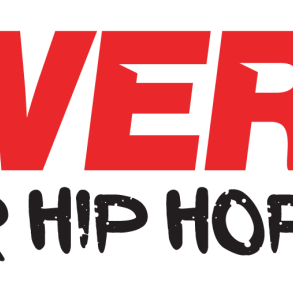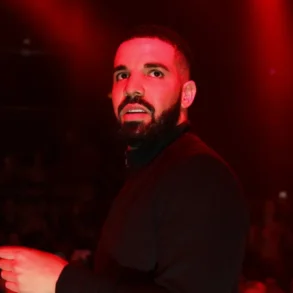Angela Woods, aka Cheeky Blakk, started her career as a teenager, first as a backup dancer and then on the mic herself. After meeting Edgar “Pimp Daddy” Givens (who died in 1994), the two became music partners as well as romantic partners and would trade diss records aimed at each other. In 1994, Cheeky Blakk released “Twerk Something,” which popularized the term twerking. The next year, she released “Bitch Get Off Me,” found on her Mannie Fresh-produced album “Let Me Get That Outcha,” and introduced a clapping pattern that’s also now a bounce staple. Cheeky Blakk continues to perform and record today.
Gambit: Could you tell me about your first introduction to hip-hop?
Cheeky Blakk: First, I used to be a dancer for Ju’C, she was an artist named Cicely Crawford [and was] Tre-8’s wife — he’s deceased as well. I was a backup dancer for her. And then how I turned into the performer part of it: I always did music, but nobody really wanted to give me a chance to be on the front line. Pimp Daddy, which is Edgar “Pimp Daddy” Givens, my son’s father, he had wrote a song about me. He was at Cash Money. And I came back and wrote a song about him. And from there, that’s what established Cheeky Blakk.
Gambit: How did you get started as a dancer?
Cheeky Blakk: I’d been a dancer, a pussy popper, back in the day being at [shows]. I have relatives that were in dance, and my dad, he did blues and stuff like that. But it was more like I wanted my own little space. Music saved my life, let’s put it like that.
Gambit: When you started performing, first as a backup dancer and then as musician, could you tell me about the clubs that you would perform at?
Cheeky Blakk: The clubs I would be at would be Club Rumors, Club Sensations. It’d be Big Easy, Ghost Town, Streamline [Lounge]. It’s so many of them. Black Magic, Detour, The Sand Pit. It was beaucoup. When I didn’t dance, I’d just go ask the DJ, “Can I get the mic?” and I grab the mic and I get the crowd hype. And that’s what it was.
Gambit: How did the song “Twerk Something” come together?
Cheeky Blakk: [The word] Twerk came about, as I said it was called pussy poppin’. I couldn’t call it pussy poppin’ on the radio, so therefore I came up with twerk. When I recorded “Twerk Something,” I was with Mobo Joe. That’s the first, original “Twerk Something.” On that song is me, Ricky B, John Quest, Precious, a girl named Kellyanna and a boy named General. We all was in there, in the studio and they just played “Triggerman” (aka The Showboys’ “Drag Rap”) and “Brown Beats” (by Cameron Paul) back-to-back. It was like a live thing. And that’s where the twerking started. This was in early ’94, I want to say April.
They used to have these pussy pop contests. They used to have like $200 for the best pussy popper. So the only way you could be a pussy popper was to be a dancer, a female dancer.

Cheeky Blakk
Gambit: When you jumped on the mic, who were some of the other women emcees in New Orleans?
Cheeky Blakk: They had Silky Slim, she did a song called “Sister Sister.” There was Ghetto Twiinz, Females in Charge, Ms. Tee … T-Capone. Most of them were rapping. Ju’C as well. Ju’C made “Eat the Cat” — so now you see how the pussy poppin’ came out.
It was mostly [a] male [scene]. Everybody wanted to be gangsters. I didn’t want to be no gangster. I wanted to be in the club, make the club pop, make everybody dance, make them chant. I was different from everybody else, but no matter where I went or what mic I got on, I just got the attention.
Gambit: What is your view of bounce today?
Cheeky Blakk: It’s fuckery. This one lying, saying they did this thing. That one saying they did that. It’s not authentic. Anything that’s going on now just reminds me of a younger me.
We started off, it was just “Triggerman” and “Brown Beats,” but when I came out with “Bitch Get Off Me,” which is the Cheeky Blakk claps is what they called it, that’s the main beat that’s mixed with any song right now that they want to do the bounce thing with.
We didn’t have back then what they have [today]. Our stuff was word of mouth, pass out flyers, going doing in-stores and things of that nature. You couldn’t get on the internet and just go viral or anything. It wasn’t none of that. It’s totally like, these artists don’t like to pay homage. They think they’re legends and because they have one hit, they on. But it’s way more than that.
People like us had to pave the way to get to what they doing now. And a lot of people don’t give credit. But I don’t trip on that. I’m certified. I ain’t gotta worry about none of that.
Gambit: Is there anything that you feel like people don’t know about you that you would want to talk about?
Cheeky Blakk: I’m gonna put that on my documentary for myself, because a lot of people like to cut and paste, and I don’t like all that. But I’m me. I’m a loving person. I’m a caring person. And I’m just down-to-earth. I’m just me. What you see is what you get.
This post was originally published on this site be sure to check out more of their content.







